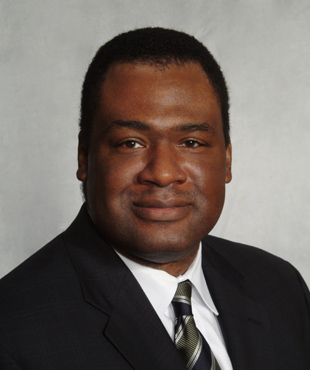

Leonard Searcy
Partner – Shook, Hardy & Bacon LLP
Description of field of expertise
Leonard counsels clients in intellectual property with an emphasis on procurement of domestic and foreign patent, trademark and copyright protection. He represents national and international clients across a broad technology spectrum, and speaks Spanish. Leonard focuses his patent work on patent prosecution, infringement and validity analyses including re-examinations and intellectual property portfolio analyses. He counsels clients with respect to patent procurement strategies, analyses of patents including offensive and defensive strategies, and analyses of potential patent acquisition targets. Leonard has drafted and prosecuted numerous patent applications and he routinely manages patent procurement activities and supervises attorneys in their drafting and prosecuting efforts.
Leonard counsels clients with respect to trademark procurement and protection, including developing registration strategies. He has drafted and prosecuted numerous trademark applications. He also works on domain name cybersquatting issues and uses arbitration processes to help clients stop phishing activities or obtain new domain names.
Before joining Shook, Leonard worked for Bell Laboratories and later Lucent Technologies and has more than 19 years of engineering experience in the domestic and international markets in wireline and wireless telecommunications.
Leonard earned his J.D. from Loyola University Chicago, and has a master’s degree and bachelor’s degree in electrical engineering from the Georgia Institute of Technology. He is a board member for sacred (Sexually Abused Children’s Relief Endeavor), and is a member of Sigma Pi Phi Fraternity and Omega Psi Phi Fraternity. Leonard often donates his time as a speaker promoting science, technology, engineering and math (STEM) education and related careers to children at local schools and churches. He is also a member of the Supreme Court of Missouri’s Commission on Racial and Ethnic Fairness and the Practice of Law Subcommittee. Leonard is a 2011 Leadership Council on Legal Diversity Fellow and currently serves on Shook’s Executive Committee.
What advice would you offer to new attorneys interested in your field?
New attorneys should consider becoming eligible to sit for the Patent Bar exam by having either a science or technology degree, having work experience in a technical field, or having sufficient college courses in science or technology. After passing the Patent Bar exam, the attorney can become Registered to Practice Before the United States Patent & Trademark Office. If the new attorney wants to focus on a trademark, copyright, trade secret, or licensing practice, this registration is not required. An attorney, who has work experience in a technology area and has passed the Patent Bar, gets a strong consideration by law firms and companies. In addition, if the attorney has very good grades from college and law school, that makes the attorney an even stronger candidate for consideration for intellectual property. Once the attorney enters the intellectual property practice, that attorney should be focused on providing excellent client service.
Final thoughts…
The best advice I received when I started working as an attorney was to start business development through developing relationships. I was told not to depend on my colleagues for work, but to start nurturing relationships, attending conferences, and providing help to in-house attorneys to help them develop their careers.
